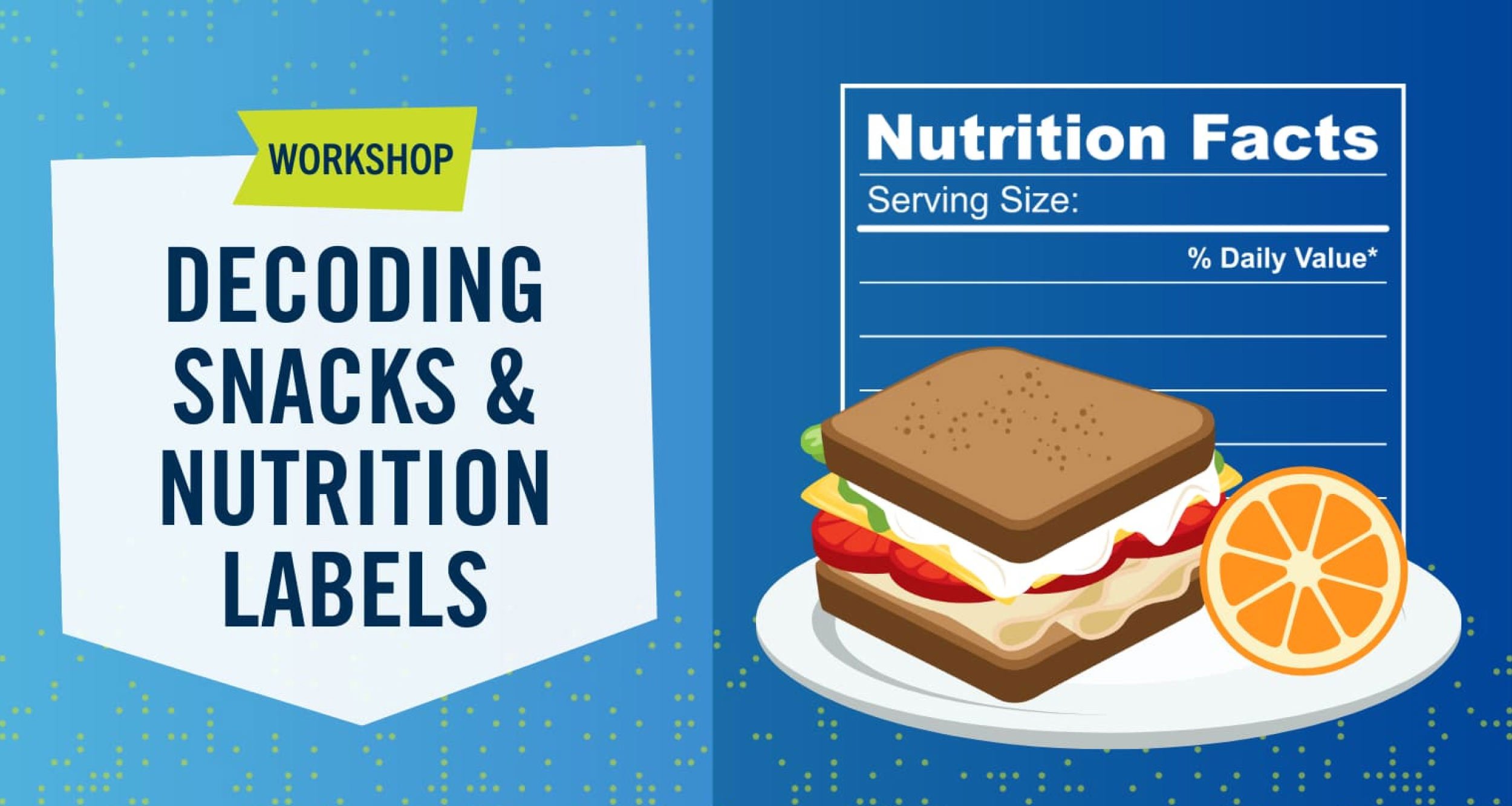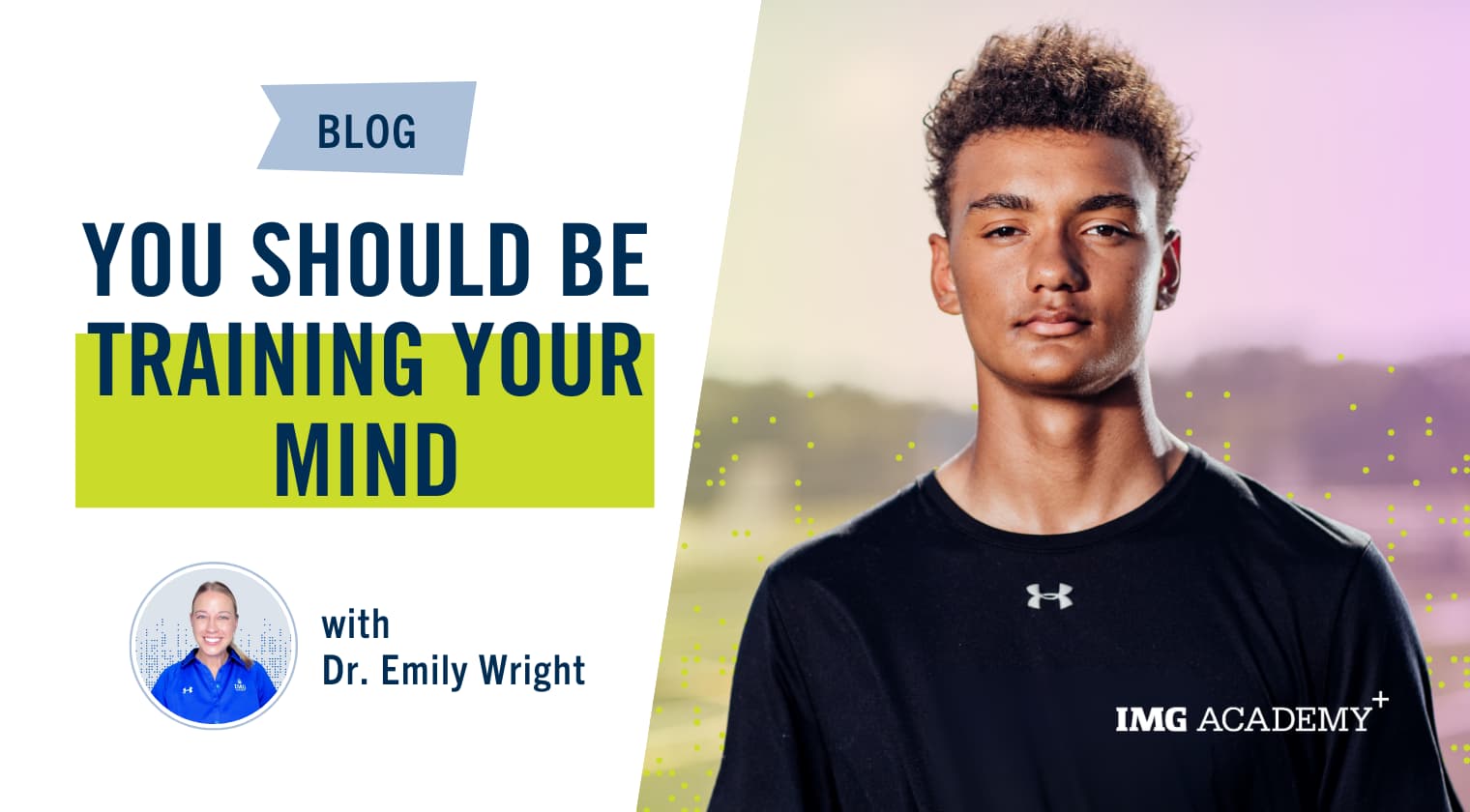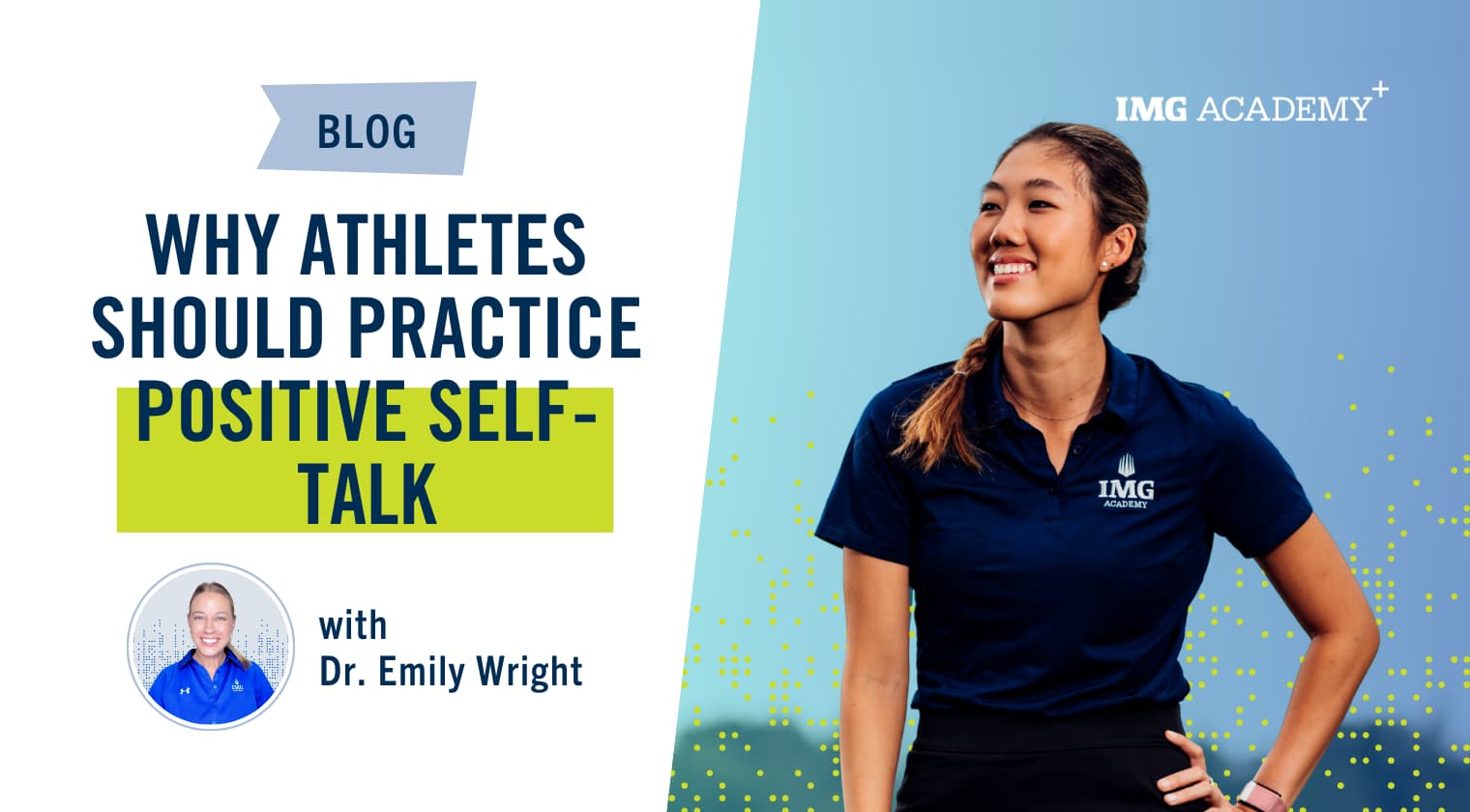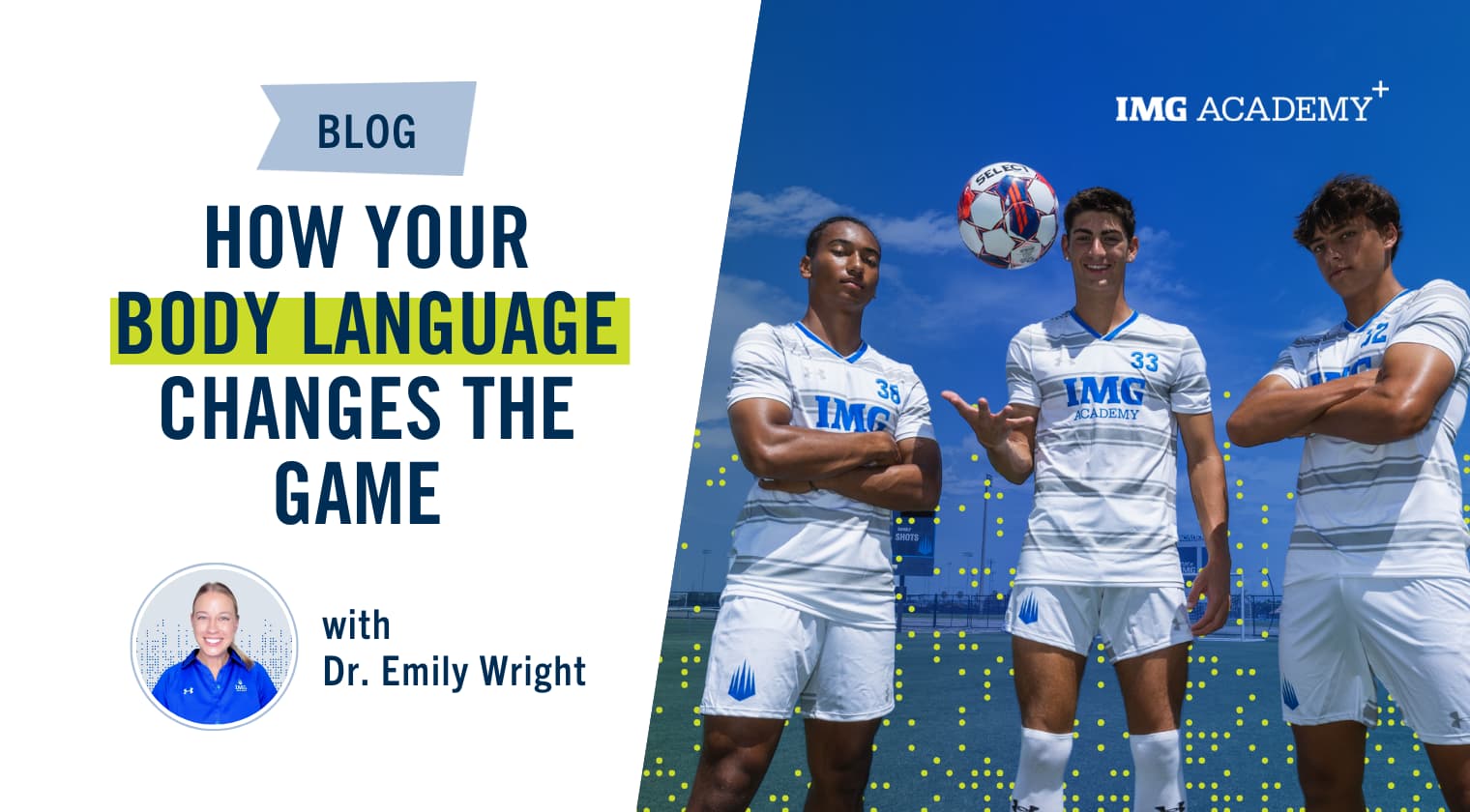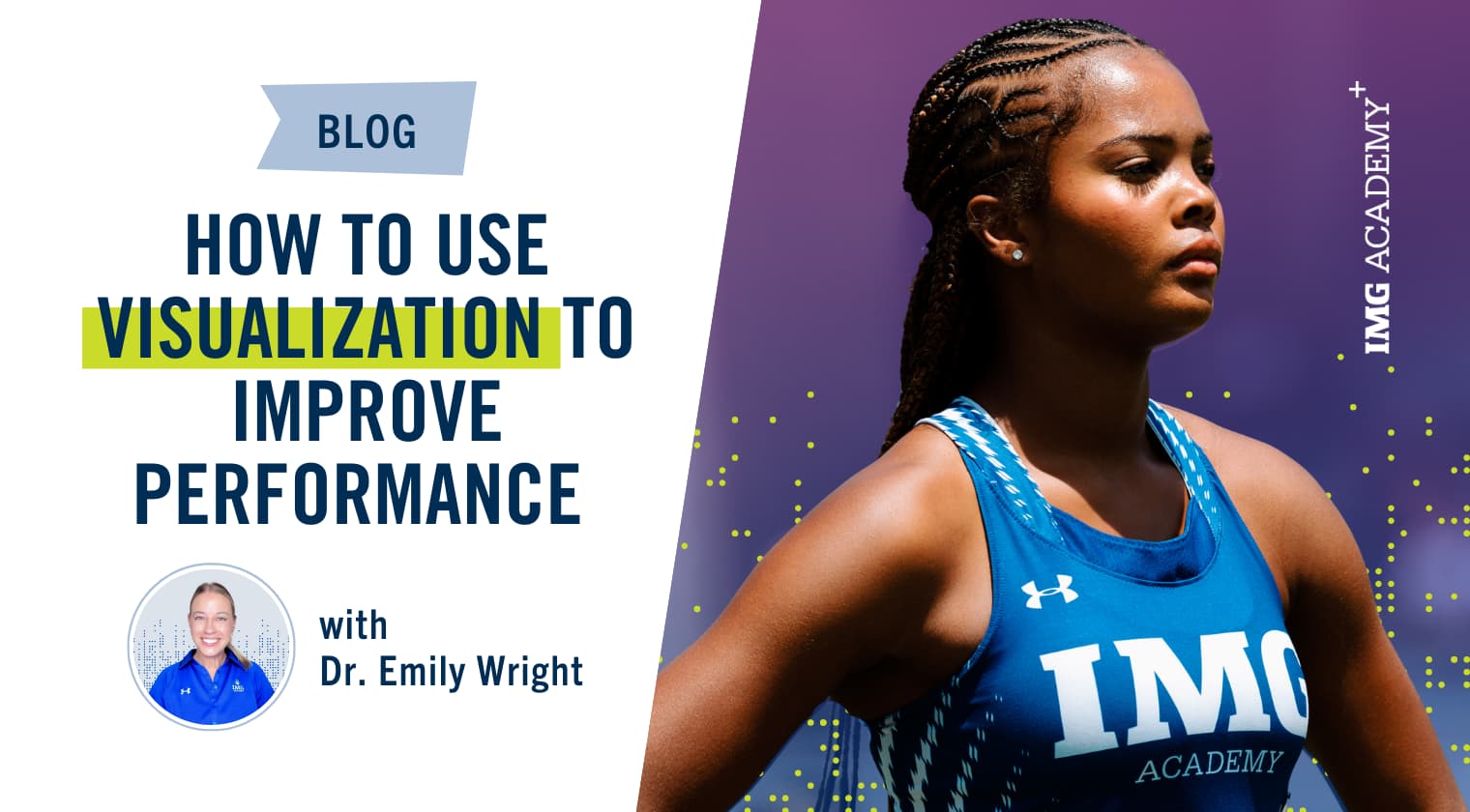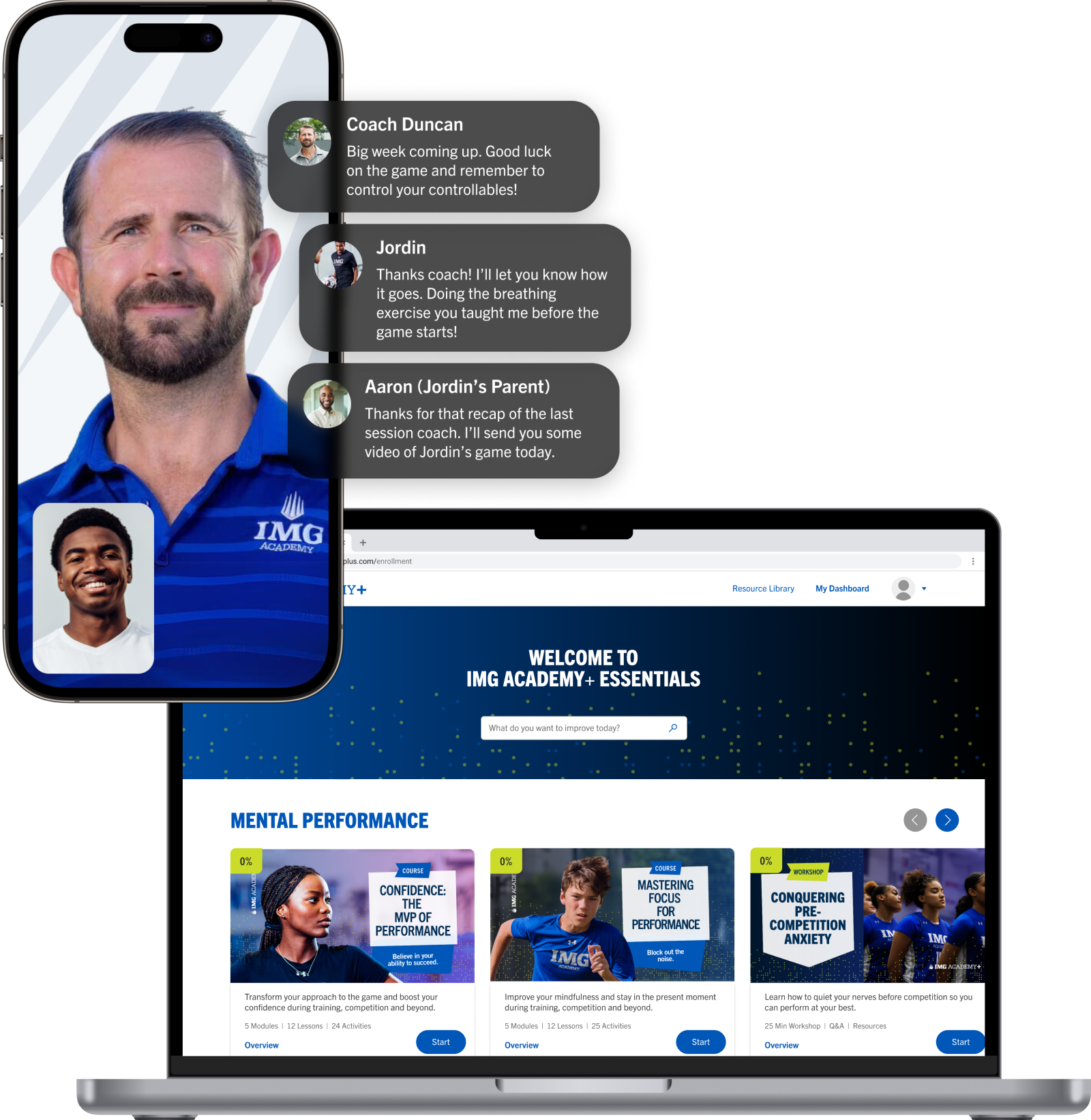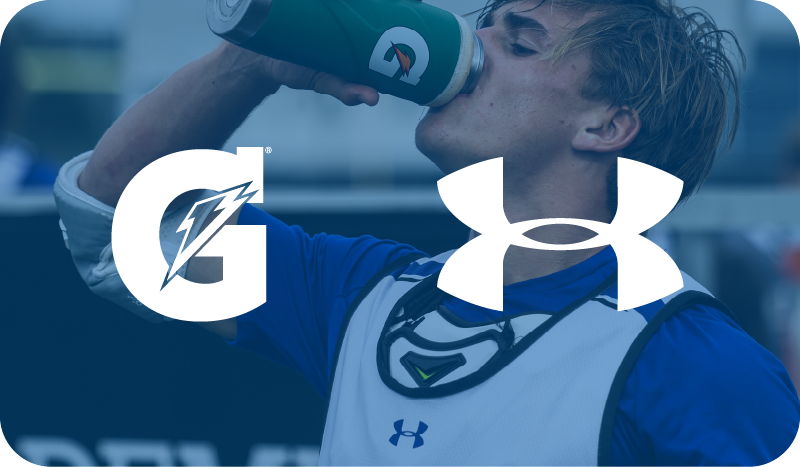Legends such as Shohei Ohtani and LeBron James have credited healthy sleep habits for their performance, longevity, and health. In fact, the secret weapon for today’s elite athletes may be found on the pillow.
“Sleep is the No. 1 performance enhancement tool, with the most research and evidence behind it,” says Christian Smith, Assistant Head of Mental Performance at IMG Academy. And while getting sleep should be low-hanging fruit — we all do it every night, right? — “it’s the easiest thing to cut out when we’re trying to fit school, sports, and a social life into our day,” he says.
Keep reading to learn how lack of sleep can affect a student-athlete’s focus and just how many hours of shut-eye are optimal for sport.
How Does Sleep Affect Focus?
Sleep deprivation significantly impairs cognitive functions that are essential for athletic performance, such as memory, attention, and concentration, Smith says. Unfortunately, “attentional control becomes more difficult,” too, he says, adding that a lack of sleep makes it easier to succumb to distractions.
Compounding the problem is that when people begin to feel sleep-deprived, they may not recognize it. “The impairment becomes less obvious to people who are impaired,” Smith says.
How Does Sleep Affect Athletic Performance?
Part of what makes sleep so crucial to sport is that it plays a critical role in both the physical and cognitive aspects of athletic performance. As previously noted, a lack of sleep can lead to cognitive errors and difficulty maintaining focus and attention during training or competition. But reaction times may also be compromised, which can be particularly dangerous in sports that require quick decision-making and precision, such as basketball and baseball. Furthermore, inadequate sleep is predictive of injury.
“Recovery is essential for doing your best,” Smith says. “And if you’re not sleeping, your body is not recovering and regenerating, so wear and tear accumulates.”
How Much Sleep Do Athletes Need?
The National Sleep Foundation recommends eight to 10 hours of sleep per night for teenagers (ages 14-17). But between academics and demanding sport schedules, student-athletes often face challenges maintaining adequate sleep. Also, “the brain may not always be ready for sleep when athletes need it most, given the intense physical and mental demands student-athletes face throughout the day,” Smith says.
How Can Student-Athletes Improve Their Sleep?
There are many ways to improve your ability to fall and stay asleep. First and foremost is to establish consistent sleep times. Try to go to bed and wake up around the same time, even on weekends.
“Sleep routines are also important,” Smith says. Ideally, you can develop a “mini-routine” before bed that signals to the brain that it’s time to start shutting down; for example, taking a bath, reading (not on a phone or tablet), or listening to music.
Smith also emphasizes the benefits of proper sleep hygiene — as in, making sure your sleeping conditions are pristine. “In general, a cooler room is better than a warmer one for sleep,” Smith says. “And limit light both from the outside and from electronic devices that could light up during the night.”
Speaking of phones, Smith says that studies have shown that simply having a cellphone nearby can detract from people’s ability to focus. But when it comes to sleep, cellphones are perhaps even more detrimental. Although many of us read on our phones and use them as an alarm clock, the blue light they emit has been shown to disrupt sleep, possibly by tricking the brain into thinking that it’s daytime.
What to Do if You Can’t Fall Asleep
“You want to associate the bed with sleep,” Smith says. So, if you’re wrestling with falling asleep, it may be counterintuitive, but Smith says to get out of bed. “Don’t force it. Athletes are used to feeling like they have more control over things, but you have to let sleep happen,” he says.
Instead, consider doing some breathing or relaxation exercises until you get groggy enough to go to bed.
What to Do if You’re Tired During the Day
Say you had difficulty sleeping and didn’t quite log the hours you needed. Smith is an advocate of napping. “Incorporating strategic naps can be beneficial for athletes, with shorter naps (of 10 to 30 minutes) preferred to longer ones to avoid entering the deepest stages of sleep from which it’s harder to wake up,” he says.
In summary, sleep is a game changer for student-athletes looking to boost their focus, performance, and overall health. When student-athletes make a point to stick to regular sleep schedules, set up relaxing sleep environments, and practice good sleep habits, they may find they wake up to sleep’s amazing ability to rejuvenate and excel in their sports — and lives.
Ready to learn how you perform in the clutch? Take IMG Academy’s on-demand focus course.


